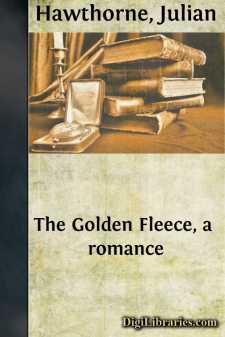Categories
- Antiques & Collectibles 13
- Architecture 36
- Art 48
- Bibles 22
- Biography & Autobiography 813
- Body, Mind & Spirit 142
- Business & Economics 28
- Children's Books 17
- Children's Fiction 14
- Computers 4
- Cooking 94
- Crafts & Hobbies 4
- Drama 346
- Education 46
- Family & Relationships 57
- Fiction 11829
- Games 19
- Gardening 17
- Health & Fitness 34
- History 1377
- House & Home 1
- Humor 147
- Juvenile Fiction 1873
- Juvenile Nonfiction 202
- Language Arts & Disciplines 88
- Law 16
- Literary Collections 686
- Literary Criticism 179
- Mathematics 13
- Medical 41
- Music 40
- Nature 179
- Non-Classifiable 1768
- Performing Arts 7
- Periodicals 1453
- Philosophy 64
- Photography 2
- Poetry 896
- Political Science 203
- Psychology 42
- Reference 154
- Religion 513
- Science 126
- Self-Help 84
- Social Science 81
- Sports & Recreation 34
- Study Aids 3
- Technology & Engineering 59
- Transportation 23
- Travel 463
- True Crime 29
Our website is made possible by displaying online advertisements to our visitors.
Please consider supporting us by disabling your ad blocker.
David Poindexter's Disappearance, and Other Tales
by: Julian Hawthorne
Description:
Excerpt
Among the records of the English state trials are to be found many strange stories, which would, as the phrase is, make the fortune of a modern novelist. But there are also numerous cases, not less stimulating to imagination and curiosity, which never attained more than local notoriety, of which the law was able to take but comparatively small cognizance, although they became subjects of much unofficial discussion and mystification. Among these cases none, perhaps, is better worth recalling than that of David Poindexter. It will be my aim here to tell the tale as simply and briefly as possible —to repeat it, indeed, very much as it came to my ears while living, several years ago, near the scene in which its events took place. There is a temptation to amplify it, and to give it a more recent date and a different setting; but (other considerations aside) the story might lose in force and weight more than it would thereby gain in artistic balance and smoothness.
David Poindexter was a younger son of an old and respected family in Sussex, England. He was born in London in 1785. He was educated at Oxford, with a view to his entering the clerical profession, and in the year 1810 he obtained a living in the little town of Witton, near Twickenham, known historically as the home of Sir John Suckling. The Poindexters had been much impoverished by the excesses of David's father and grandfather, and David seems to have had few or no resources beyond the very modest stipend appertaining to his position. He was, at all events, poor, though possessed of capacities which bade fair to open to him some of the higher prizes of his calling; but, on the other hand, there is evidence that he chafed at his poverty, and reason to believe that he had inherited no small share of the ill-regulated temperament which had proved so detrimental to the elder generations of his family.
Personally he was a man of striking aspect, having long, dark hair, heavily-marked eyebrows, and blue eyes; his mouth and chin were graceful in contour, but wanting in resolution; his figure was tall, well knit, and slender. He was an eloquent preacher, and capable, when warmed by his subject, of powerfully affecting the emotions of his congregation. He was a great favorite with women—whom, however, he uniformly treated with coldness—and by no means unpopular with men, toward some of whom he manifested much less reserve. Nevertheless, before the close of the second year of his incumbency he was known to be paying his addresses to a young lady of the neighborhood, Miss Edith Saltine, the only child of an ex-army officer. The colonel was a widower, and in poor health, and since he was living mainly on his half-pay, and had very little to give his daughter, the affair was looked upon as a love match, the rather since Edith was a handsome young woman of charming character. The Reverend David Poindexter certainly had every appearance of being deeply in love; and it is often seen that the passions of reserved men, when once aroused, are stronger than those of persons more generally demonstrative.
Colonel Saltine did not at first receive his proposed son-in-law with favor. He was a valetudinarian, and accustomed to regard his daughter as his nurse by right, and he resented the idea of her leaving him forlorn for the sake of a good-looking parson. It is very likely that his objections might have had the effect of breaking off the match, for his daughter was devotedly attached to him, and hardly questioned his right to dispose of her as he saw fit; but after a while the worthy gentleman seems to have thought better of his contrariness. Poindexter had strong persuasive powers, and no doubt made himself personally agreeable to the colonel, and, moreover, it was arranged that the latter should occupy the same house with Mr. and Mrs. Poindexter after they were married. Nevertheless, the colonel was not a man to move rapidly, and the engagement had worn along for nearly a year without the wedding-day having been fixed....











